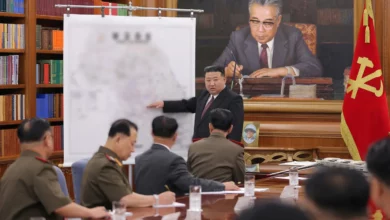Former US ambassador to Egypt Edward Walker is now the latest US official to call on the Egyptian government to allow international monitoring of impending parliamentary elections to ensure “greater transparency,” reports privately-owned Al-Shorouk. The remarks came during a discussion organized by Voice of America radio in Washington D.C. Analysts say they reflect heightened international interest in Egypt’s elections.
In response, head of the press and media desk at the Egyptian embassy in Washington, Karim Hagag, refused the “internationalization” of the elections through international monitors, according to Al-Shorouk. Hagag added that various political parties–including Wafd, Tagammu, and the Nasserist party–oppose the idea even more so than the government. He further argued that 2800 Egyptian judges will monitor the elections to ensure its legitimacy.
Despite Hagag's guarantees for free and fair elections, the US administration is urging Egypt to follow three steps to ensure the integrity of the elections, reports privately-owned Al-Dostour. The measures include allowing peaceful political gatherings, permitting international monitors to attend the voting and counting processes, and guaranteeing free media coverage of the elections.
In a sign of Egyptian discontent over these issues, the Los Angeles Times recently reported Egyptian youth are calling for a complete boycott of elections due to corruption in the Mubarak regime, according to Al-Wafd, published by the Wafd party.
The National Democratic Party (NDP) and opposition parties alike have issued their own set of assurances for fair elections, reports state-run Rose Al-Youssef. Law professor Shawki al-Sayyid argued that Egypt’s people’s assembly matured much earlier than the US and that parliamentary sovereignty has been in place in Egypt since 1866. This means that what the US is demanding should be considered an insult to Egyptians, asserting that Egyptians are capable of monitoring their own elections. Al-Sayyid added that there is a popular consensus against international monitoring.
Mohammed Abul Ela, vice president of the Tagammu party and Sahel district candidate, echoed al-Sayyid's statements, while adding that Washington’s demands have no relevance considering political gatherings take place uninhibited. Egyptian non-governmental organizations (NGOs), Abul Ela continued, can effectively play the role of international monitors.
Wafd party secretary general Mounir Fakhry Abdul Nour has publicly opposed Washington’s calls, as well. Abdul Nour argued that the US has had negative experiences with countries that agreed to international monitoring. The call for international monitoring, Abdul Nour said, stems from domestic pressure from the US Congress.
In related developments, the High Elections Commission, headed by Abdul Aziz Omar, specified a number of guidelines that members of Egyptian NGOs should respect when following elections, reports state-run Al-Ahram. According to the guidelines, NGO members cannot be affiliated with or members of political parties or candidates. Those authorized to follow the elections may enter polling stations with permission from the head of the electoral commission or the secondary committees. They can also report documented transgressions to responsible officials, but they cannot interfere in the work of the committee’s president or any of its members, nor can they make any suggestions or ask for clarifications. Finally, election followers cannot conduct opinion polls or any interviews with voters inside polling stations. They also cannot campaign on behalf of any candidate.
In other news, Muslim Brotherhood (MB) sources said 137 of its members have been arrested in 17 governorates over the past couple of days, according to Al-Shorouk. Those responsible for organizing electoral campaign of MB candidates added that state security forces have prevented them from distributing religious cards and campaign materials.
Egypt's papers:
Al-Ahram: Daily, state-run, largest distribution in Egypt
Al-Akhbar: Daily, state-run, second to Al-Ahram in institutional size
Al-Gomhorriya: Daily, state-run
Rose el-Youssef: Daily, state-run, close to the National Democratic Party's Policies Secretariat
Al-Dostour: Daily, privately owned
Al-Shorouk: Daily, privately owned
Al-Wafd: Daily, published by the liberal Wafd Party
Al-Arabi: Weekly, published by the Arab Nasserist party
Youm7: Weekly, privately owned
Sawt el-Umma: Weekly, privately owned




